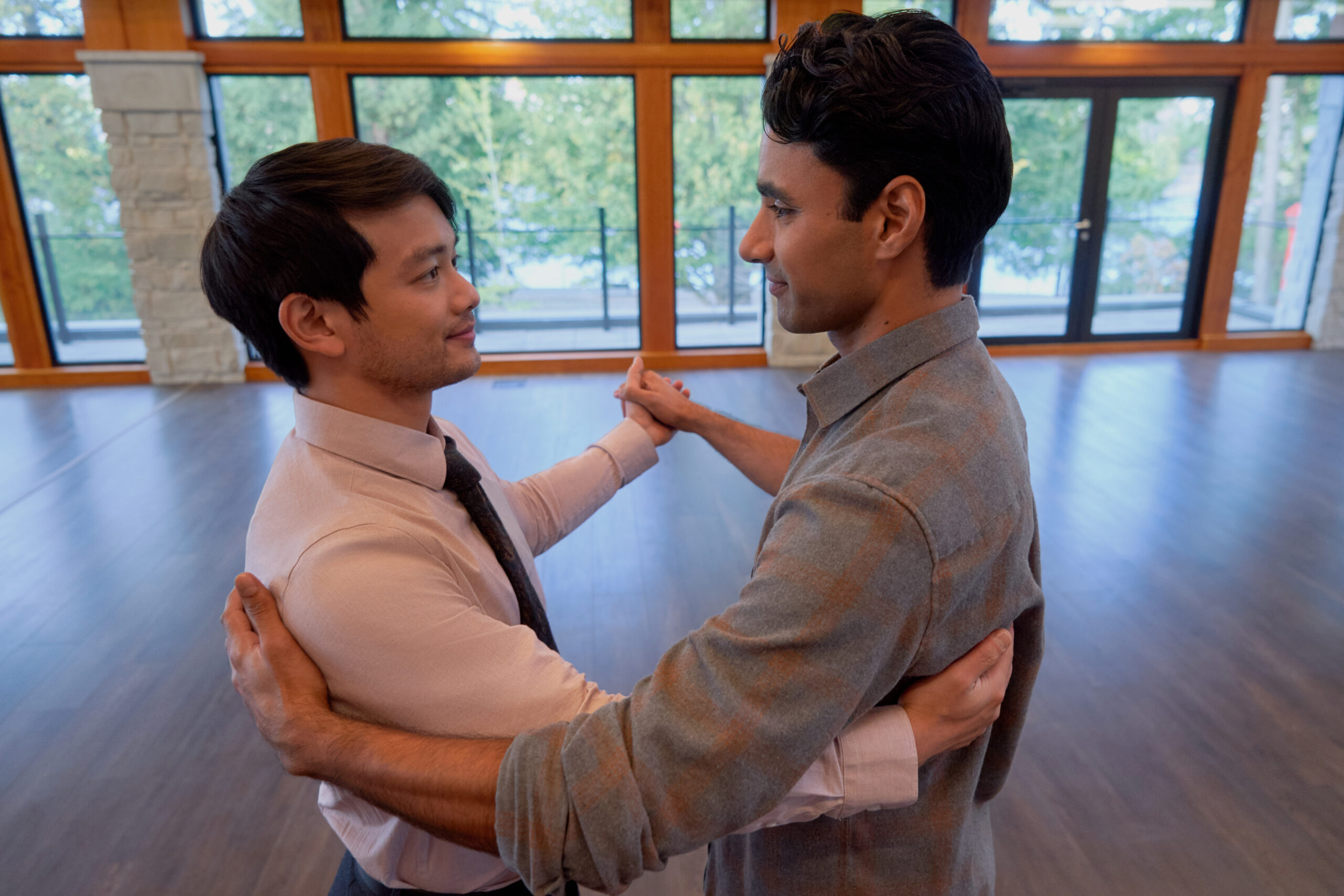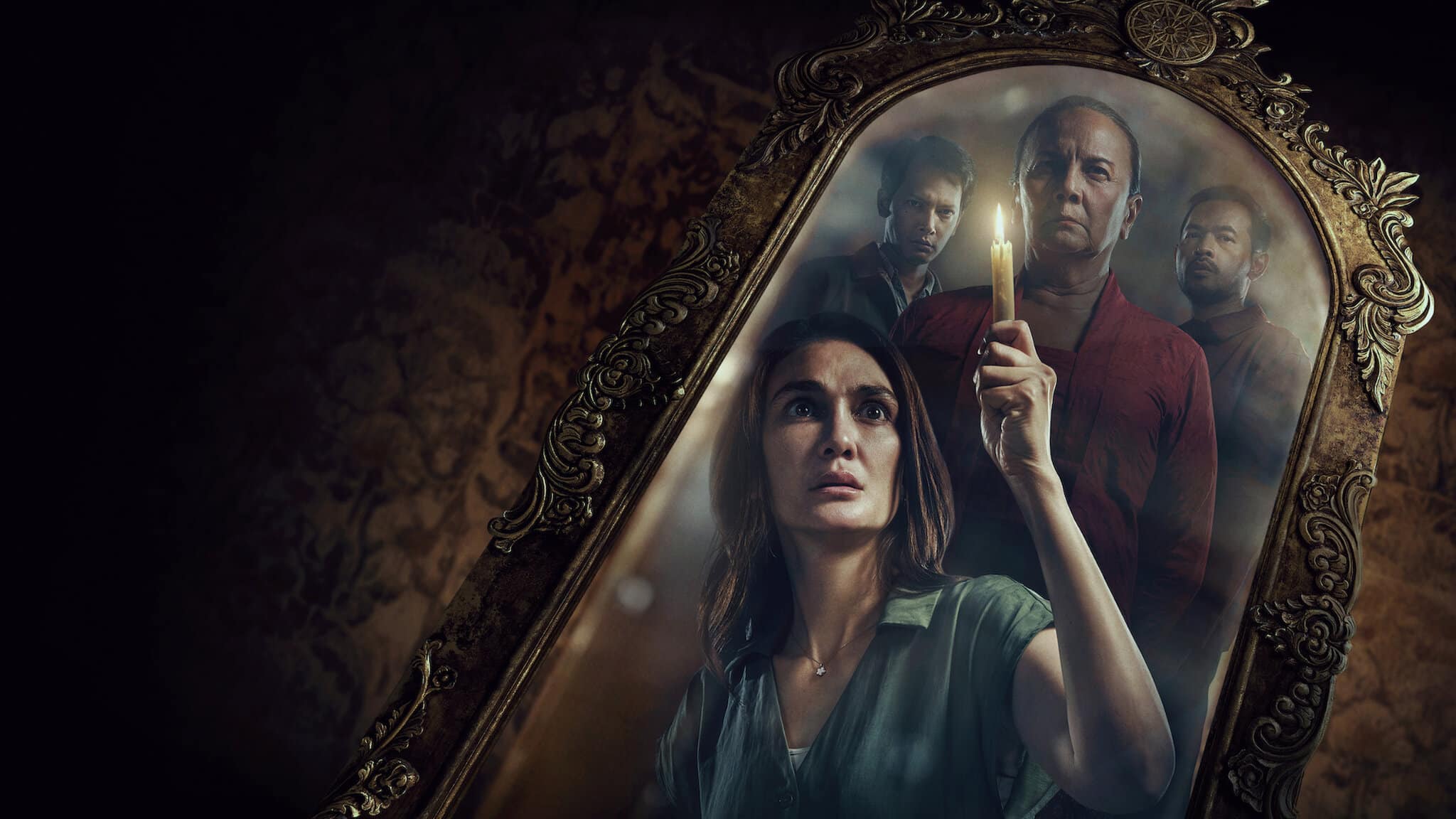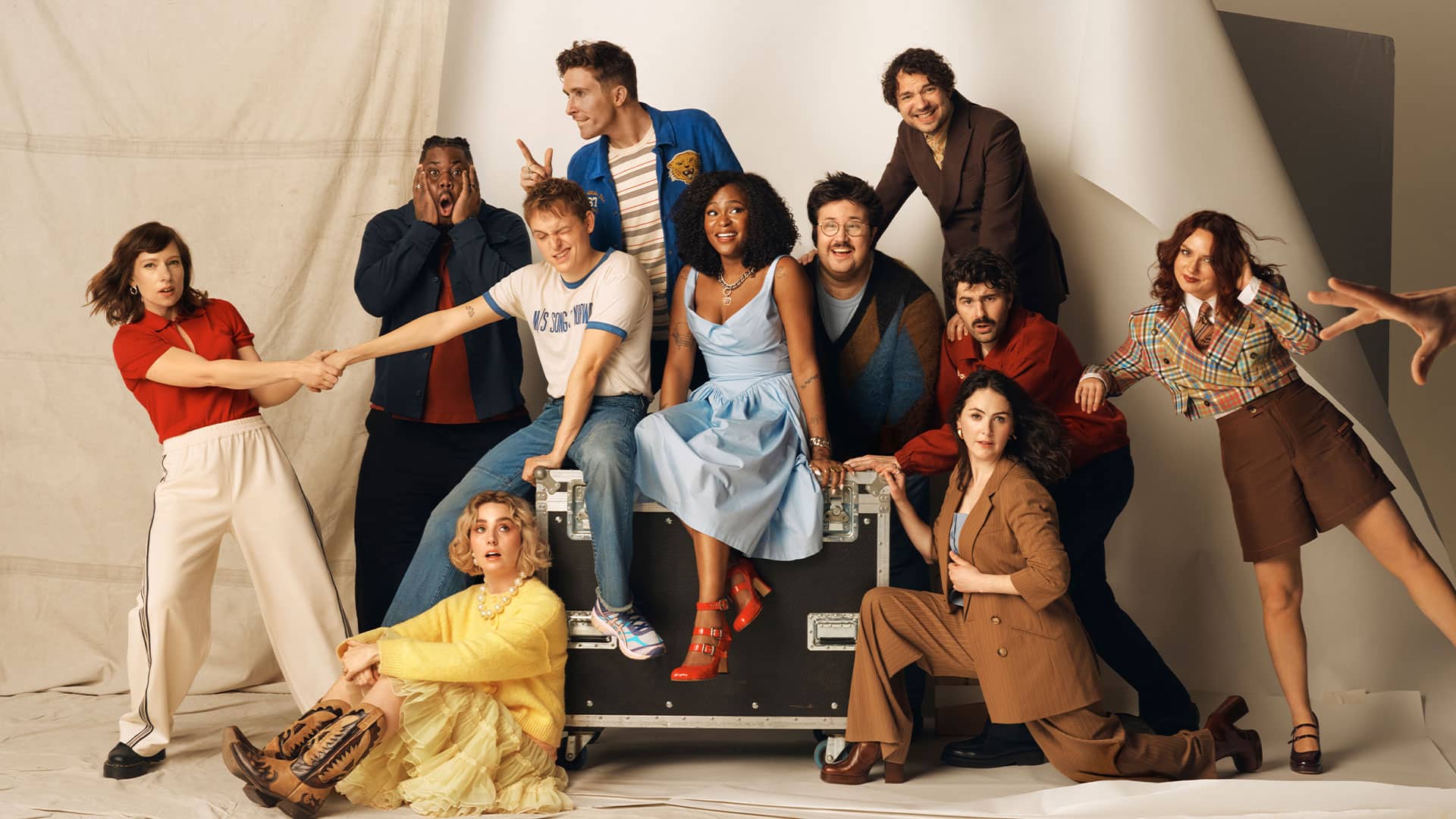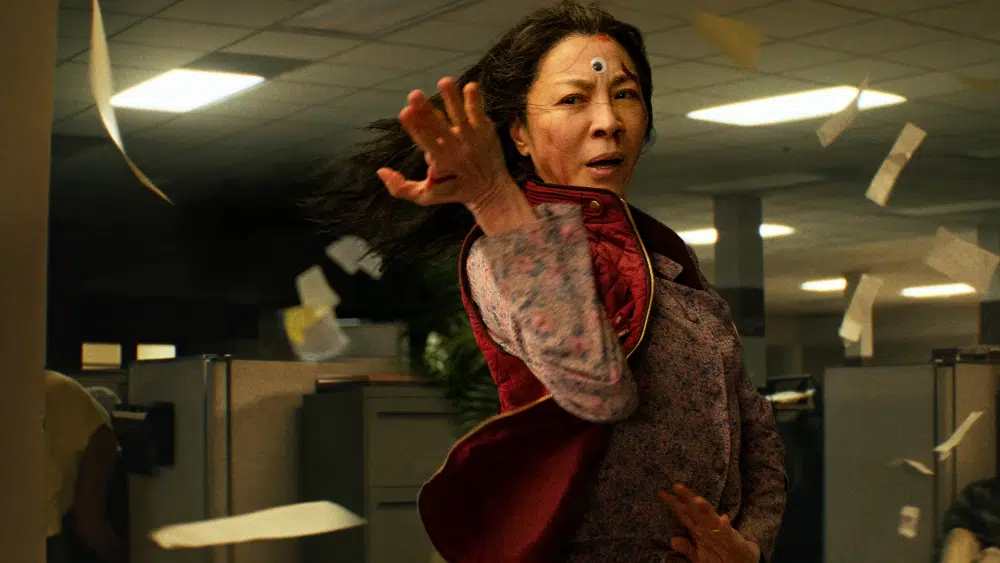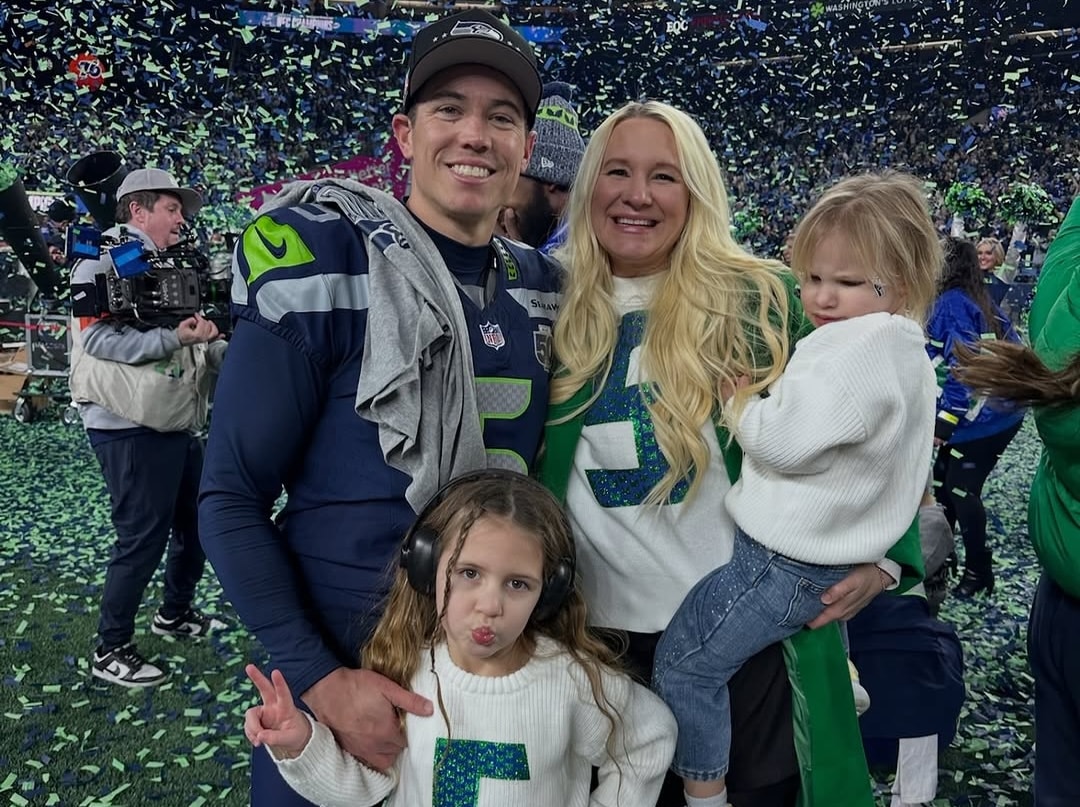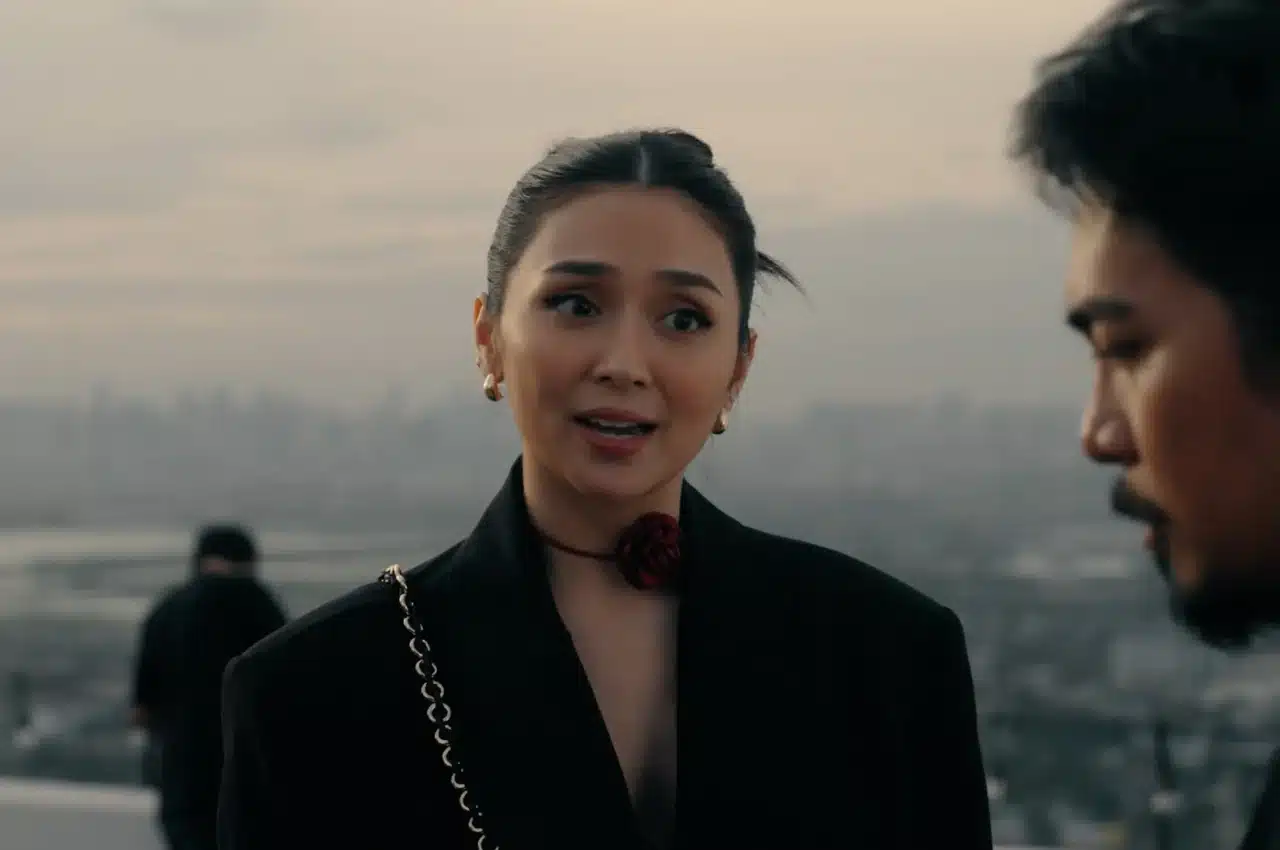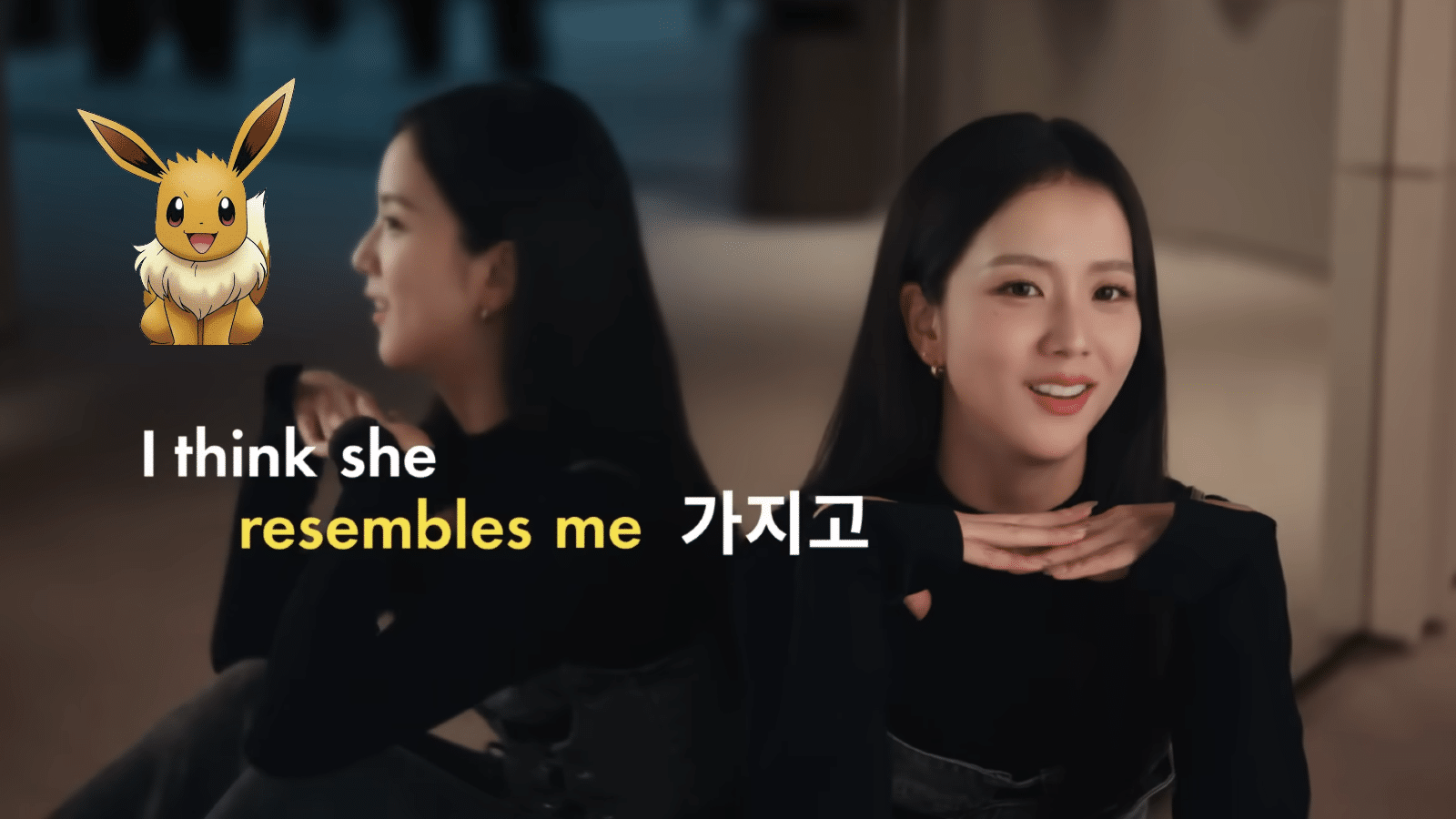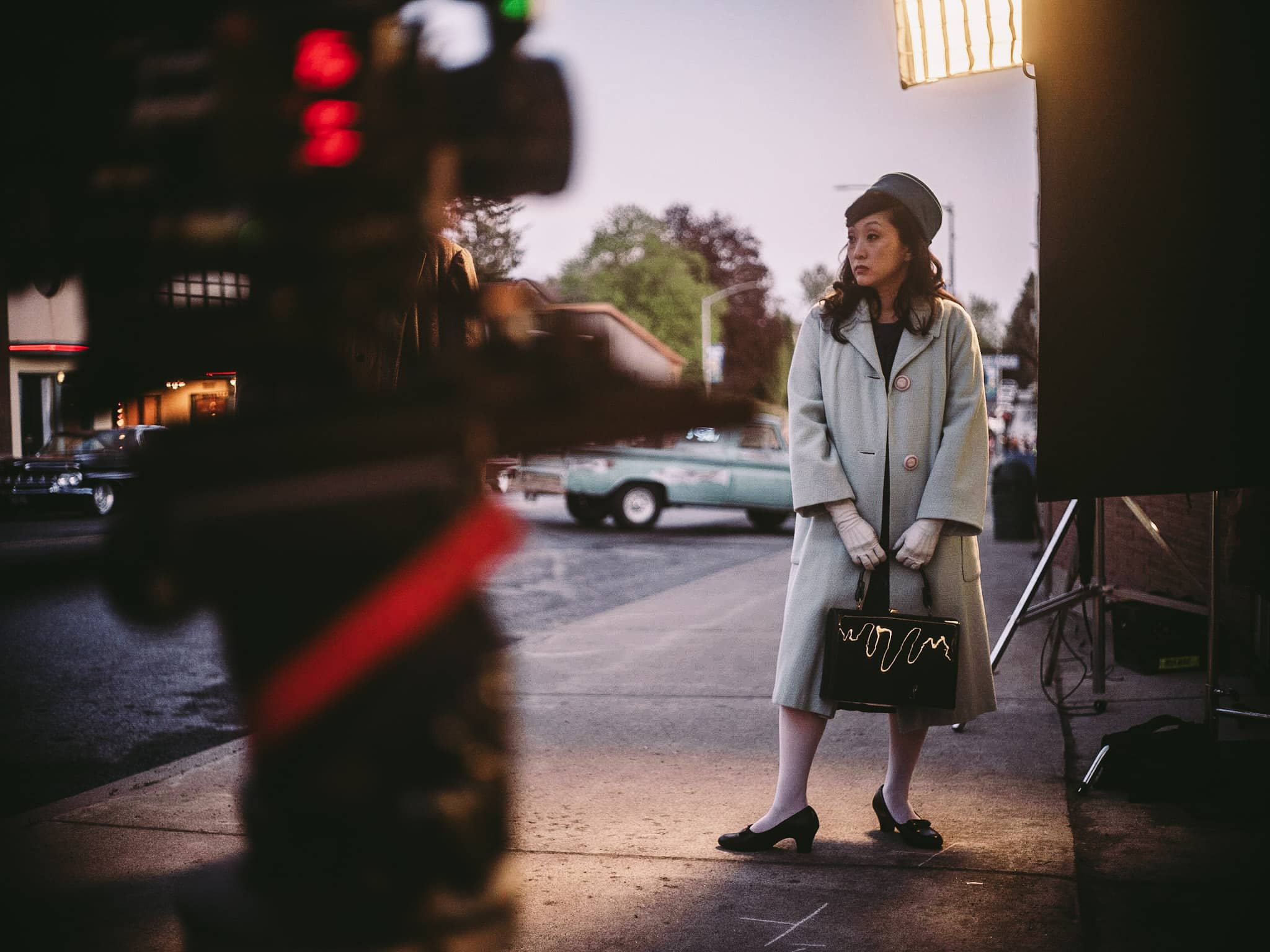Supernatural fans will know him as Kevin Tran. Star Trek Trekkies will know him as Oros. The Flash followers will know him as Ryan Choi. But soon, you’ll know Osric Chau as Ted Lau in the upcoming Hallmark series, Holidazed.
The Lin Family – the third episode of Holidazed – sees Ted Lin and his fiancé Marcus (Shawn Ahmed) gather with Ted’s family to celebrate their engagement, but complications arise when Grandma Lin (Lucille Soong) arrives, unaware that Ted is gay. To avoid upsetting her, the family pretends that Marcus is engaged to Ted’s sister, leading to unexpected discoveries about Grandma Lin’s openness and deepening family connections.
Chau has indeed worn many hats over his acting career and in his own right has made significant strides for Asian representation in film and TV. But now, the Asian Canadian actor is now turning a corner in his career to pursue his new found love of producing. Sitting down with Resonate, Chau reflected on his extensive career and reveals the challenges Asian representation faces in the producing world.
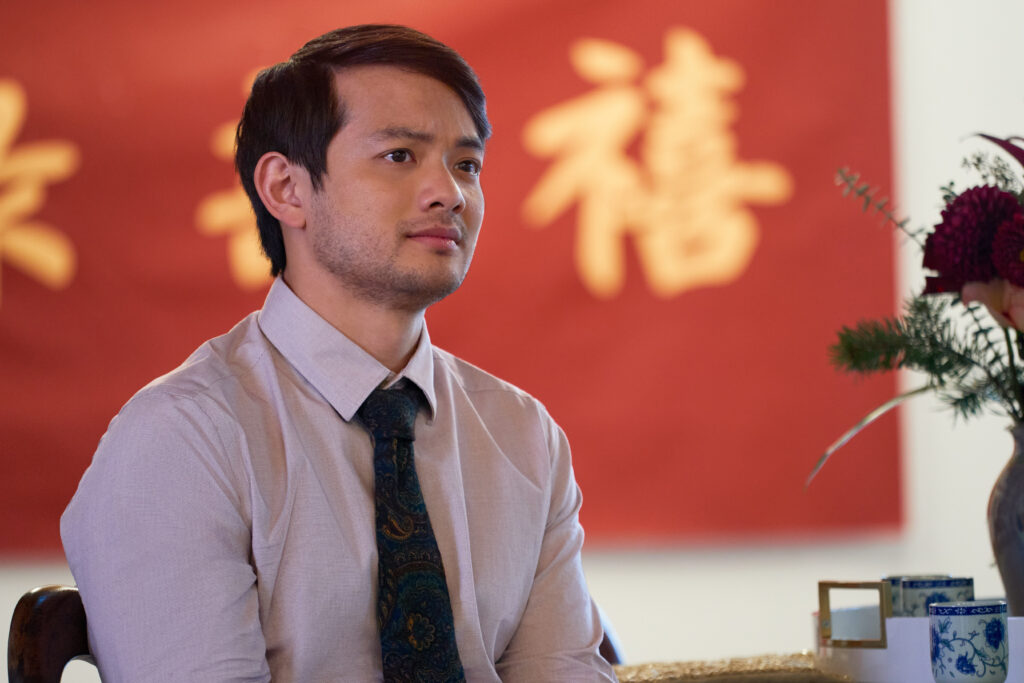
RT: Maybe you could tell us a bit about your upbringing and what led you to pursue the industry?
OC: You know, acting wasn’t something I planned on. I actually started as a martial artist. My parents were really supportive and put me and my brothers into all kinds of classes, one of which was acting. It was just something random that stuck with me long enough to get an agent—Andrew Ooi, by the way—who was just starting his agency (Echelon Talent) at the time. But for the first decade, I was a terrible client—barely showing up for auditions, and when I did, I didn’t know what I was doing. I was just bad at it. But through that process, I built relationships with casting directors who got to know me.
By the time I finished high school, I realized that acting could be a good option, especially since I wasn’t interested in school. I started to focus on it, and casting directors saw that growth in me. Andrew eventually learned that I was pretty good at martial arts, which led to my first lead role since I could do my own stunts. After that, I knew this was the industry for me. That experience opened up more opportunities, and now I’m focusing on producing, exploring the business side of the industry, which is something I never really understood as an actor. I see myself as always learning, and I hope that never changes.
RT: Were there any actors that you looked up to growing up?
OC: Not really. I mean, Jet Li and Jackie Chan were influences, but acting wasn’t something I focused on back then. I didn’t really appreciate the craft until much later. It took me about 15 years to realize how skilled actors can be. It wasn’t until I started working on the other side of the camera that I really understood how challenging acting is. Now I see things I could have done better and moments where I was lazy, which I didn’t notice at the time.
Read more: ‘Squid Game’ Creators Tease “Crazy” Season 2 – Gi-hun’s Back for Revenge!
RT: You mentioned that you can’t imagine yourself in any other industry. What is it about acting that you love?
OC: It’s not so much about acting, but the industry as a whole. I love the collaborative nature of it—thousands of people coming together to work on what can sometimes be a very silly project. There’s something magical about that. Plus, the unpredictability excites me. I get bored easily, so not knowing what’s coming next keeps me engaged. You could be out of work for years or suddenly flying across the world for a new gig—you just never know.
RT: We have to talk about Supernatural for a bit, where a lot of people know you from. How did that role come about?
OC: At the time, I was living between Beijing, LA, and Vancouver. I was en route to LA, but had a week in Vancouver for a callback on another big show. My agent, Andrew, also got me a director’s session for Supernatural, which was just a guest star role. I almost didn’t go because I already had my flights booked, and rescheduling was expensive—about $600. But Andrew convinced me it was worth it. So I worked really hard on that audition, and when I got to LA, I ended up with offers for both roles. Initially, I turned down Supernatural for the bigger role, but things worked out. The other show didn’t get picked up, and Supernatural kept me around for a couple of seasons. So, it all worked out for the best.
RT: Last time we talked, you mentioned that you weren’t initially happy with your Supernatural character, Kevin. Do you think the industry has changed in terms of stereotypical roles?
OC: Definitely. The industry has evolved a lot, and society’s understanding of Asian culture has broadened. K-pop, anime, and other Asian cultural exports have become mainstream, which has helped. But stereotypes still exist, and they come from a place of truth. It’s about how you use them—whether you do something fresh with them or not. Kevin Tran started as a stereotypical character, but over time, they developed him more. That’s what you hope for as an actor, that the character evolves beyond the initial stereotype.
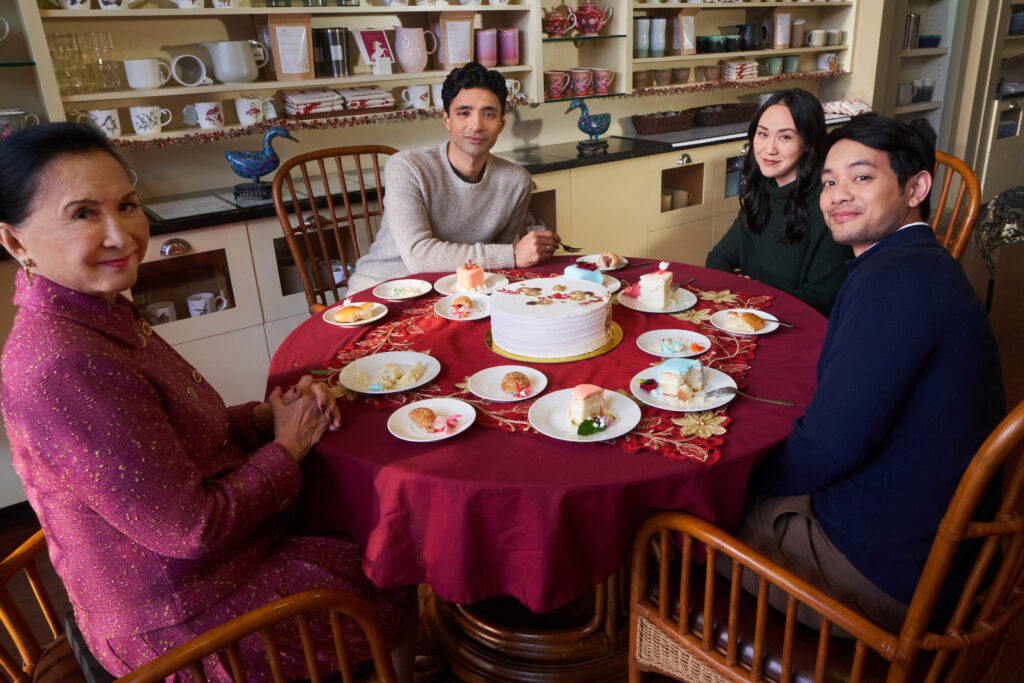
RT: Did that evolution come from your input, or was it mostly the writers?
OC: I can’t take credit for that—it was all the writers. They kept me around and found interesting ways to develop the character. If I had more experience or confidence back then, I might have voiced my thoughts more. But at the time, I was just happy to have a job. If I had that role now, I’d definitely have more conversations with the writers.
RT: Have you had more input on characters in your roles since then?
OC: Yes, especially now that I’ve started producing. I look at scripts with a critical eye and think about how characters can be stronger or more interesting. As an actor, you want characters to have agency—to be actively working towards something. I’m more involved in shaping that now, but it’s a skill that developed over time.
RT: What type of characters do you enjoy playing the most?
OC: I don’t have a preference. I enjoy both comedy and drama, though comedy is definitely more fun because it’s lighter and less emotionally draining. But as long as the character has depth and agency, I’m happy. The worst thing is being in a scene and wondering why your character is even there.
RT: Do you have a favorite character you’ve played so far?
OC: Not really. I’ve enjoyed different aspects of different roles. But I hope my favorite role is still to come.
RT: How did you transition into producing?
OC: It came from frustration. I found myself complaining about the quality of some projects and wondering how they got funded. At some point, I realized I needed to stop waiting for others to create better work and start doing it myself. That shift happened when I started seeing younger actors looking up to me, and I realized I was now the person people were waiting on to take action. So, I decided to take control and start producing.
RT: What do you enjoy about producing compared to acting?
OC: It’s about taking agency in my career. I don’t have to wait around for auditions anymore. With the industry slowdown, if I had the same mindset I did a few years ago, I’d be worried. But now, I’m developing my own projects, and if an audition comes in, great. But I’m not dependent on it. I want to create opportunities for myself and my community.
RT: We’ve talked before about the struggles Asians face in Hollywood as actors. Does that spill over to the producer side as well?
OC: It’s the same issue — there just isn’t a deep enough talent pool. When you move up to higher, more visible roles, it becomes a risk-mitigation issue. From a business standpoint, if you’re investing millions, you can’t take too many chances. So, you look at who has proven themselves, and that list is mostly white people. Even if you want to hire others, particularly minorities, they haven’t been given enough opportunities to work their way up. It’s a chicken-and-egg situation: if no one gets a chance, how do they end up on that list? It’s almost impossible.
It takes a very specific kind of project, often at a lower level, or they need to go out on their own, work on no budget, prove themselves, and maybe then they’ll make it to the list. It’s incredibly hard to grow to that level. So, yes, the industry is struggling because it’s harder for minorities, especially in roles like director. It’s such a big responsibility. How do you give a big job like that to someone who hasn’t proven themselves? Actors, for instance, can take on supporting roles and gradually work their way up, but for directors, it’s much harder because it’s so expensive. They have to direct shorts, and even then, people might say, “Well, you haven’t directed enough.”
You almost need a community to believe in you, to invest in your work, and if you get lucky and it takes off, then someone else might take a chance on you. But it’s tough.
RT: Yeah, that’s super interesting. We’ve seen a few Netflix and streaming shows that have done well, and they’ve been Asian-focused, like Shogun, Everything Everywhere, and The Brother’s Sun. These stories feature predominantly Asian American casts, which is great, but your projects seem to take a different path. They aren’t necessarily focused solely on Asian American stories, right? Was that a conscious choice for your career?
Read more: Ke Huy Quan to Star in Christmas Eve Action Thriller ‘Fairytale in New York’
OC: Not really. I’m just happy to have a job, and it just so happens I’ve often been the token Asian. Last year, I did a movie called Worth the Wait, which is like an Asian Love Actually. It was an amazing experience to be part of an all-Asian cast because it was a first for me. It was eye-opening not to be the token, and I’d love to do it again.
That said, from an entrepreneurial standpoint, we can’t make movies only for our community. We have to appeal to a global audience. Our stories need to resonate with everyone. It’s about universal themes, where the “Asianness” can be secondary or subtle — like Easter eggs. If you get it, you get it, but even if you don’t, the story still needs to be enjoyable. What’s often missing from Asian content is that we lead with “this is super Asian,” which not everyone is into. We have to make it more accessible, so people can enjoy it first and then maybe learn about our culture along the way.
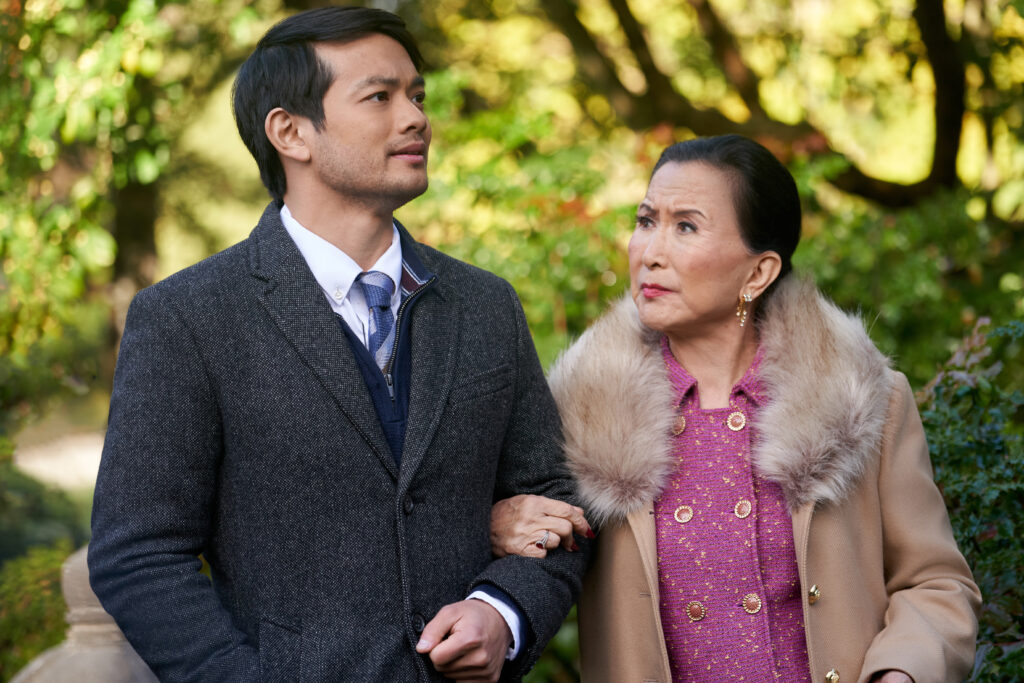
RT: I get that. Sometimes I don’t even catch all the references that are meant to be relatable for the culture. So, what can you tell us about your upcoming project, Holidazed?
OC: Holidazed is Hallmark’s first Christmas series. It follows six families, with each family getting their own episode, but everyone appears in the first and last episodes. My storyline is a coming-out story. I’m trying to come out to my very conservative grandmother, and my fiancé is a South Asian man. For Hallmark, this is pretty progressive, and I’m really proud they’re telling these stories. The producers were great, always asking for our input to ensure cultural accuracy, which was awesome. I’ve seen the show already, and I’m really excited for everyone else to see it. It exceeded all my expectations!
RT: That sounds great! Who was your favorite person to work with on that project?
OC: Definitely Gina Matthews, the showrunner, producer, and director of our episode. She was incredible, super detailed, and on top of everything from the script to every department. It was inspiring to work so closely with her.
RT: What about upcoming projects? Anything you’re particularly excited about?
OC: I’ve got a few indie films on various platforms, but I’m working on a fourth one right now. This time, I want to be more intentional. My first three were more about just getting something made. This time, I want it to be accessible, fun, and commercially viable — something people want to watch, not just because I’m asking them to. I’ve got a few projects in development, and one of them could start as soon as next month. If not, it’ll be next year, but I’m working hard on it and hope to share more soon.
Holidazed premiers Thursday, November 14 on Hallmark+

